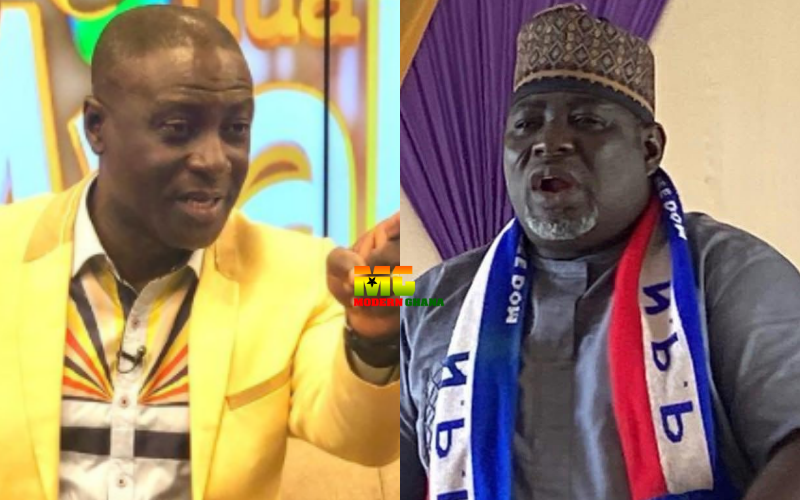This incident revolves around accusations made by Alhaji Masawud Osman, the National 3rd Vice Chairman of the New Patriotic Party (NPP) in Ghana, against broadcast journalist Captain Smart, whose real name is Blessed Godsbrain Smart. Osman alleges that Smart incited violence in Obuasi through his on-air commentary, leading to a confrontation between youth and the military, resulting in the death of Osman’s family member. Osman vows to pursue legal action against Smart, asserting that the journalist’s words directly led to the tragic events and that “crime has no expiry date.” He insists that Smart must be held accountable for the alleged incitement and the subsequent loss of life. The emotional weight of this accusation is evident in Osman’s public statements, where he expresses his determination to seek justice for his family and others affected by the violence.
The core of Osman’s accusation centers on Captain Smart’s alleged call to the youth of Obuasi to engage in illegal activities. While the exact nature of the alleged incitement remains unspecified in the provided text, Osman believes it was directly responsible for provoking the confrontation with the military presence at Anglogold Ashanti. This confrontation, according to Osman, resulted in the fatal shooting of his family member. He links the tragedy directly to Smart’s broadcast, arguing that the journalist’s words acted as a catalyst for the violence.
The situation also involves commentary from another media personality, Afia Pokua, known as Vim Lady. Pokua criticizes both the public and Media General Limited, Captain Smart’s employer, for what she perceives as encouragement of Smart’s allegedly unprofessional behavior. She contends that the public’s support and the media’s attention have emboldened Smart, allowing him to misuse the freedom of speech protections afforded in Ghana. Pokua argues that this “over-pampering” has created a sense of entitlement, leading Smart to make controversial statements and incite actions while claiming to hold politicians accountable.
Pokua’s critique raises the broader issue of the responsible exercise of free speech within the media landscape. Her comments suggest a concern that the line between holding power accountable and engaging in inflammatory rhetoric has been blurred in Smart’s case. This raises questions about the role of media organizations in ensuring responsible broadcasting and the potential consequences of unchecked commentary, particularly in a volatile political climate.
The incident underscores the tensions that can arise between media personalities, political figures, and the public in a context of social and political commentary. The accusations made by Osman highlight the potential impact of media rhetoric on real-world events and the serious consequences that can arise from inflammatory speech. The situation also brings to the forefront the debate surrounding freedom of speech, its limits, and the responsibilities that come with it, particularly for those with a public platform.
Finally, the situation reveals a complex interplay of factors contributing to the escalating tensions. It involves allegations of incitement, questions of media responsibility, the role of public support in shaping media narratives, and the potential consequences of unchecked rhetoric. The incident serves as a case study in the challenges of navigating free speech within a dynamic political and social environment, highlighting the importance of responsible media practices and the need for accountability across all sectors of public life.














